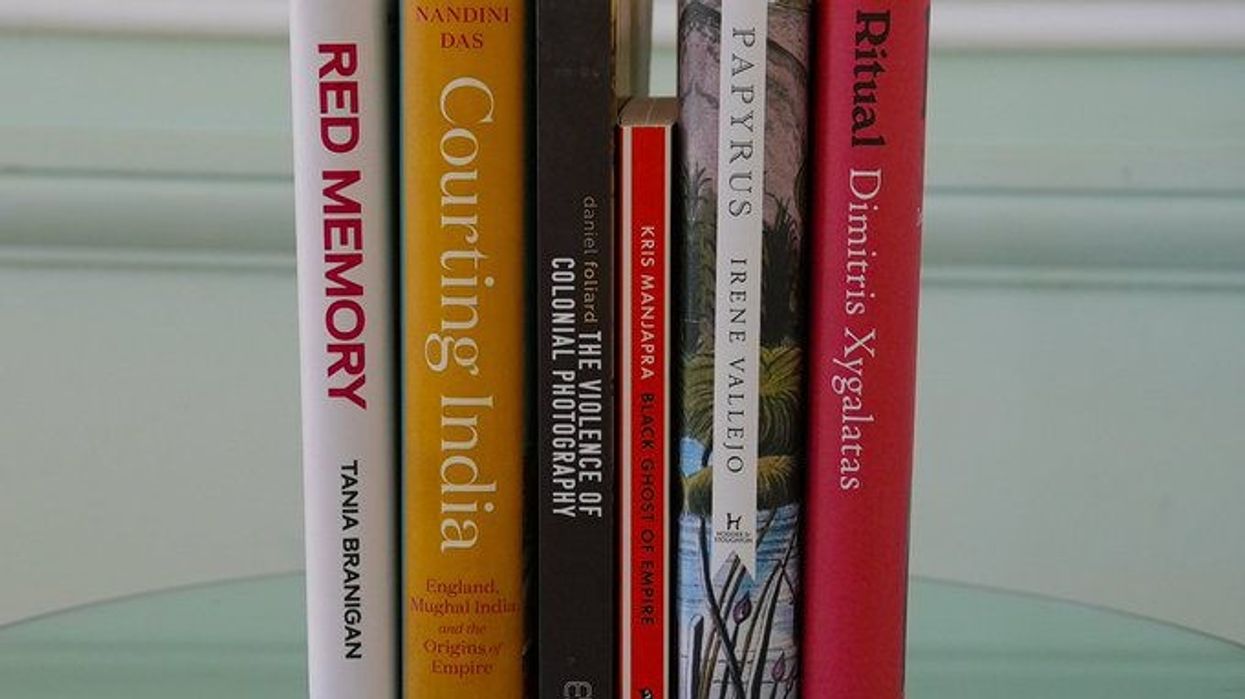Nandini Das from the UK and Kris Manjapra from the US, both with Indian heritage are among the six global writers announced on Tuesday (12) for the 2023 British Academy Book Prize, for Global Cultural Understanding, a prestigious international non-fiction award valued at GBP 25,000.
Nandini Das, originally from India, is a contender for the accolade with her work 'Courting India: England, Mughal India, and the Birth of Empire,' while Kris Manjapra, of Caribbean descent with a mixed African and Indian background, has earned a spot on the shortlist with 'Black Ghost of Empire: The Prolonged Demise of Slavery and the Unsuccessful Quest for Emancipation.'
The prize, now in its 11th year, is open to authors of any nationality based anywhere in the world and working in any language provided the nominated work is available in English and published in the UK.
It celebrates research-based works of non-fiction that have made an outstanding contribution to the public understanding of world cultures and the ways in which they interconnect.
"We were greatly impressed by the exceptional quality of writing in this year's shortlist and the ability of the authors to unearth extraordinary new discoveries and to find new perspectives on old perceptions," said Professor Charles Tripp, Fellow of the British Academy and chair of the 2023 jury.
Das, in her 40s, is Professor of Early Modern Literature and Culture in the English faculty at the University of Oxford. She was brought up in India and studied at Jadavpur University in Kolkata before moving to England for further study. Her shortlisted work has been praised by the judges as a "ground-breaking" debut.
"This beautifully written book tells the story of England's first diplomatic mission to India in the early 1600s, through a combination of biography and historical narrative, alternating microscopic details with broader panoramas," the judges note.
"As we learn how the Mughals and English understood and misunderstood each other, we appreciate how Das's shifting perspective reveals important insights into global connections and changing power dynamics in this pivotal period of world history," they said.
Manjapra, also in his 40s, grew up in Canada and is now Stearns Trustee Professor of History and Global Studies at Northeastern University in Boston, Massachusetts.
His shortlisted work examines the slow, drawn-out death of slavery and the failure of emancipation.
"Written with restrained passion, this is a detailed and disturbing account of the false dawn of emancipation that accompanied the formal abolition of slavery in the 19th century," read the judges' comments.
"Set against the enormity of the transatlantic slave trade and the myths surrounding its ending, this book gives life and memory to the enslaved, identifies the forces that built new systems of servitude in the aftermath of slavery, and argues forcefully against the disavowal of these ghosts in our social order," they said.
The other writers on the 2023 shortlist include France-based Daniel Foliard for 'The Violence of Colonial Photography', exploring the role of photography in the history of British and French imperialism; Spain-based Irene Vallejo 'Papyrus: The Invention of Books in the Ancient World' which chronicles literary culture in the ancient world; UK-based journalist Tania Branigan for 'Red Memory', unearthing rarely-heard stories from China; and US-based anthropologist Dimitris Xygalatas for 'Ritual: How Seemingly Senseless Acts Make Life Worth Living'.
The winner of the GBP 25,000 prize will be announced at an awards ceremony in London on October 31, when each of the shortlisted writers will receive GBP 1,000.
The 2023 judging panel for the British Academy Book Prize for Global Cultural Understanding is made up of professor Madawi Al-Rasheed FBA, visiting professor at the Middle East Centre at the London School of Economics; professor Rebecca Earle, food historian and professor of History at the University of Warwick; Fatima Manji, award-winning broadcaster; and professor Gary Younge Hon, the award-winning author, broadcaster and professor of Sociology at the University of Manchester.
(PTI)




